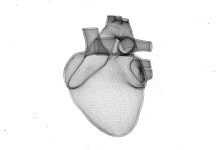Matt Thornton from CoolMed examines legislation regarding breastfeeding at work, safe storage of breast milk, and the importance of proper storage facilities
Currently, UK legislation supports breastfeeding at work, allowing mothers to express milk for their infants without compromising their professional commitments. Let’s explore the legislation, ways to safely store breast milk, and the significance of appropriate storage facilities.
Legislation supporting breastfeeding at work
The Equality Act 2010 safeguards the rights of breastfeeding mothers in the workplace. Employers are required to provide suitable facilities for pregnant and breastfeeding employees to rest and express milk. Discrimination based on pregnancy or maternity is strictly prohibited, encouraging a supportive and inclusive work environment for mothers.
Promoting breastfeeding at work extends beyond compliance – it supports mothers both personally and professionally. By providing designated spaces and time for milk expression, employers show their dedication to their employee’s wellbeing.
Safely storing breast milk
Proper storage of breast milk is crucial to maintain its nutritional value and safety. Expressed milk can be stored in a sterilised container or special storage bags, and it’s important to label and date each container. To prevent wastage, it’s advisable to store breast milk in small quantities. Here are the recommended storage guidelines:
- Refrigeration: Breast milk must be stored between 1°C and 5°C so that it can be safely stored for up to 8 days. A neonatal fridge like these from CoolMed would ensure safe storage of breast milk, featuring a lock to secure its contents and an external temperature gauge for accurate monitoring of milk temperature.
- Freezing: Breast milk can be stored in freezers like this one at or below -18°C for up to 6 months.
When defrosting frozen breast milk, you can place the container in a jug of warm water or running warm water. Once thawed, the milk must be used immediately, and any leftover milk after feeding should be discarded. Never re-freeze defrosted milk, and never use a microwave to thaw frozen breast milk as it creates hot spots that can burn your baby’s mouth.
Significance of appropriate storage facilities
The quality of storage significantly affects the condition of stored breast milk. For mothers, it’s vital to have access to dependable fridges or freezers that can safely preserve their milk. CoolMed’s medical-grade solutions become particularly relevant here. These options ensure consistent temperatures, safeguarding the nutritional value and safety of breast milk throughout its storage period. Having a designated neonatal fridge or a freezer solely for breast milk ensures optimum storage conditions and minimises the risk of contamination.
About CoolMed
With over 20 years of experience, CoolMed is a trusted partner of the NHS, providing medical fridges. They offer Next Day Delivery, backed by a 5-year warranty, and their dedicated UK Customer Service ensures top- quality support.
Inclusive policies
In conclusion, breastfeeding at work is not just about complying with legislation; it’s about nurturing a workplace that values employee well-being. CoolMed’s medical-grade fridges and freezers play a crucial role in ensuring that expressed breast milk is stored in optimal conditions, maintaining its nutritional quality and safety.

This work is licensed under Creative Commons Attribution-NonCommercial-NoDerivatives 4.0 International.












Crucial discussion! Supporting breastfeeding mothers in the workplace is essential for fostering a supportive and inclusive environment. Thanks for highlighting this important aspect of maternal well-being